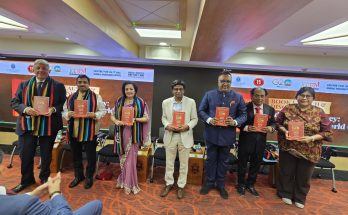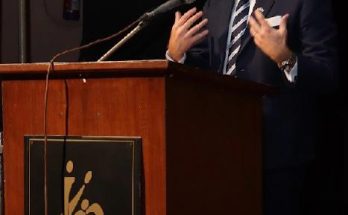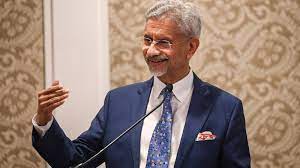The horror that we dreaded when we lived in Nairobi – for three and a half plus years – has finally come back to haunt. A quaintly charming city of salubrious climes and friendly denizens, Nairobi, paradoxically, is also notoriously named “Nairobbery” as safety and crime have always been issues of great concern. While armed robberies and carjacking were the order of the day, nothing so brazen like the September 21 attack on the city’s prominent mall had happened since the US embassy bombing of 1998.
As one from the diplomatic fraternity, we stayed in the High Ridge complex of the Indian High Commission, a few blocks away from the upscale Westgate Mall that is the latest target of global terror. Westgate is an iconic symbol in Nairobi city’s cosmopolitan cultural landscape. Unlike in India, the malls in Kenya are not impersonal shoppers’ destination but are more intimate in nature as a hub for social networking. The food courts are never crammed and watching movies in one of its multiplex theatres is akin to going for a private screening, a privileged experience. With both Kenyan Indians and expatriates avidly devouring Bollywood movies, we have seen first day first show of many new releases, at times being the only gaggle of girls around.
Many afternoons and evenings were happily spent with friends and visitors on the chic street-front terrace of the ArtCaffe Coffee and Bakery which bore the first brunt of the ruthless shoot-out of September 21. The aroma of freshly-brewed coffee and just-off-the-oven cakes and pastries lingered over many a conversations. This was a unique watering hole; on a somnolent afternoon I have seen school teachers bent over laptops, writers in action, diplomats in their tucked-in shirt and ties in a casual discussion, office-goers dropping in for a quick cuppa and chat, college kids in punk hairstyles with their easy banter and laughter, and ladies who lunched. Sharing tables were seen African Kenyans, Kenyan Indians, Americans and Europeans – Brits, German, and French… among other nationalities.
 On Tuesdays, I would unfailingly keep my tryst with the rooftop Maasai market, the biggest draw in Kenya after the safari in the African savannas. The marketplace was a colourful canvas with woodwork animal figurines, soapstone artefacts, textiles of kikois, khangas and Maasai shukas, carved calabashes, amber beads accessories and wooden masks, made and sold by the Akamba and Maasai craftsmen, themselves. In a country with a very high cost of living, these knick-knacks were, arguably, and sadly, the cheapest bargain one could get! It was on this rooftop, too, that fateful Saturday noon, that another set of attackers let out their volley even as a Junior Chef contest was getting underway. A dear friend who was a judge for the event had a miraculous escape but not many, including children, were as lucky.
On Tuesdays, I would unfailingly keep my tryst with the rooftop Maasai market, the biggest draw in Kenya after the safari in the African savannas. The marketplace was a colourful canvas with woodwork animal figurines, soapstone artefacts, textiles of kikois, khangas and Maasai shukas, carved calabashes, amber beads accessories and wooden masks, made and sold by the Akamba and Maasai craftsmen, themselves. In a country with a very high cost of living, these knick-knacks were, arguably, and sadly, the cheapest bargain one could get! It was on this rooftop, too, that fateful Saturday noon, that another set of attackers let out their volley even as a Junior Chef contest was getting underway. A dear friend who was a judge for the event had a miraculous escape but not many, including children, were as lucky.
 On ordinary weekdays, too, Westgate was uppermost in our minds as it housed one of the best stocked shops that went by the name of Nakumatt. An Indian-owned supermarket chain, Nakumatt is the indispensable shopping destination for the rich and the middle class alike, with nearly 30 stores in entire Kenya. Our gardeners and domestics got their provisions and other items from these megastores, too, though not from Westgate, which was a tonier outlet. This was yet another hotspot where the gunmen opened indiscriminate fire. With shelves stacked cheek-by-jowl hindering line of sight, one can only imagine the horror that must have coursed through the unsuspecting shoppers who might have got separated from their near and dear ones.
On ordinary weekdays, too, Westgate was uppermost in our minds as it housed one of the best stocked shops that went by the name of Nakumatt. An Indian-owned supermarket chain, Nakumatt is the indispensable shopping destination for the rich and the middle class alike, with nearly 30 stores in entire Kenya. Our gardeners and domestics got their provisions and other items from these megastores, too, though not from Westgate, which was a tonier outlet. This was yet another hotspot where the gunmen opened indiscriminate fire. With shelves stacked cheek-by-jowl hindering line of sight, one can only imagine the horror that must have coursed through the unsuspecting shoppers who might have got separated from their near and dear ones.
The one abiding Westgate signature that left us with a sense of foreboding every time we went there was the security check at the electronic entry gate. The car boot was checked and the underside of the carriage scanned with a mirror, religiously – a ritual peculiar only to this mall as it was Israeli-owned and had received threats a couple of times. Not that these were particularly effective measures given the location in a busy part of the city and they only reinforced our sense of insecurity. From time to time, there were advisories from various embassies asking people to avoid these hotspots but we took it in our stride as ‘one of those things’. But the recent incident has claimed or scarred – directly or indirectly – someone or the other of our friends’ friends.
It is not just the elite who go to malls who are affected by this tragedy; this barbaric act has stunned the nation of Kenyans and migrants from other nationalities who have made this beautiful country their home. The migrants include Somalis who have fled from the ‘civil war’ and poverty in their own country! For those who think that Kenya “asked for it” by its military intervention in Somalia, it would help to know the country’s humanitarian record, its inclusive nature – that it hosts the world’s largest refugee camp in Dadab in the North, where millions of Somalis cross the border for a safe haven.
 Kenya, in particular, and East Africa, in general, is not new to terrorist attacks. Apart from the spectacular US Embassy bombings in Nairobi and Dar-es-Salaam, there have been bomb, grenade and IED explosions, periodically, at venues – bus-stops and streets – that cannot be pinned to any particular demographics. The most significant being the one at a popular restaurant in Uganda in July ‘11 on the day of the soccer World Cup finals. Usually, this has been the handiwork of some Islamist groups of which the most prominent has been the Al Shabab ( meaning youth), an Al Qaeda affiliate, with a strong presence in Somalia to the North-east of Kenya, but with sufficient followers in Kenya to keep the pot brewing. A deadly cocktail of circumstances rooted in old Kenya-Somalia disputes and marinated in Kenya’s perceived role in Global War on Terror give enough scope for animosities to be sustained over long periods. The fuel to this fire was the Kenyan ‘invasion’ of South Somalia, the Shabab stronghold, in 2011. However, what is different and shocking about the latest attacks is the brazen manner in which gunmen stormed into the mall and began shooting indiscriminately while also taking hostages, eerily reminiscent of the 26/11 Mumbai attacks of 2008.
Kenya, in particular, and East Africa, in general, is not new to terrorist attacks. Apart from the spectacular US Embassy bombings in Nairobi and Dar-es-Salaam, there have been bomb, grenade and IED explosions, periodically, at venues – bus-stops and streets – that cannot be pinned to any particular demographics. The most significant being the one at a popular restaurant in Uganda in July ‘11 on the day of the soccer World Cup finals. Usually, this has been the handiwork of some Islamist groups of which the most prominent has been the Al Shabab ( meaning youth), an Al Qaeda affiliate, with a strong presence in Somalia to the North-east of Kenya, but with sufficient followers in Kenya to keep the pot brewing. A deadly cocktail of circumstances rooted in old Kenya-Somalia disputes and marinated in Kenya’s perceived role in Global War on Terror give enough scope for animosities to be sustained over long periods. The fuel to this fire was the Kenyan ‘invasion’ of South Somalia, the Shabab stronghold, in 2011. However, what is different and shocking about the latest attacks is the brazen manner in which gunmen stormed into the mall and began shooting indiscriminately while also taking hostages, eerily reminiscent of the 26/11 Mumbai attacks of 2008.
India and Kenya have deep and multiple links. As maritime neighbours, commercial and cultural exchanges have been a prominent feature for many centuries. In fact, Vasco Da Gama’s Iast lap in his historical voyage began at Malindi in Kenya, from where an Indian-Arab navigator, Ibn Majid, led him to India, changing the course of history forever. More recently, Indians were instrumental in laying the famous East African railway line (the ‘Uganda Railway’), from Mombasa in Kenya to Uganda, which resulted in the formation of the modern Kenyan state. It is perhaps a grim reflection of the modern times that we now also share common templates on terrorism and face a future marked by radical volatility. A picturesque country like Kenya, with the savannah forests and marathon runners as its calling card certainly, does not deserve this.
(Padmaja Parulkar-Kesnur’s stint as a diplomat spouse in Nairobi – from 2008 to 2012 – has converted her to a lifelong Kenya-phile).
Author Profile
Latest entries
 India and the WorldOctober 9, 2013Revisiting Westgate mall in Kenya: A symbol of multiculturalism
India and the WorldOctober 9, 2013Revisiting Westgate mall in Kenya: A symbol of multiculturalism CultureMarch 29, 2013Letter from Goa: Where there is Waste, there’s a Way
CultureMarch 29, 2013Letter from Goa: Where there is Waste, there’s a Way TravelMarch 11, 2013The Romance of Sailing: When living legends meet in Goa…
TravelMarch 11, 2013The Romance of Sailing: When living legends meet in Goa… TravelMarch 2, 2013Tsavo National Park: Not just Another Safari, check out red elephants!
TravelMarch 2, 2013Tsavo National Park: Not just Another Safari, check out red elephants!







